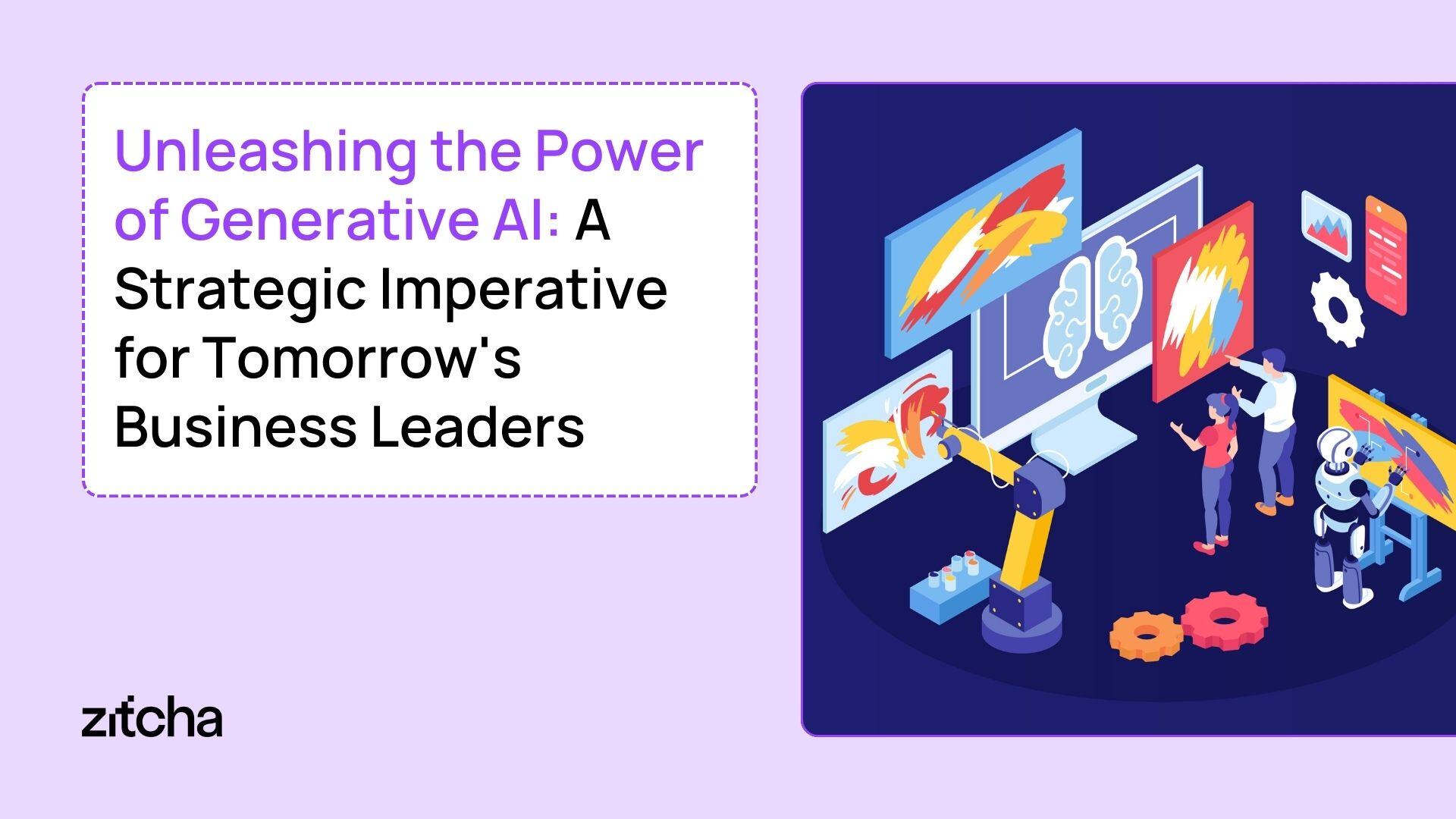

Businesses that adapt to and harness generative AI's potential will significantly enhance their competitive edge.
LEVERAGING PROPRIETARY DATA AND CUSTOMIZING USE CASES
Businesses can significantly enhance their generative AI models' effectiveness by tailoring them to proprietary data and specific use cases. Utilizing exclusive data, tapping into domain knowledge, and employing specialized hardware are some of the strategies these companies can use.
Exclusive data, often more relevant to the firm's needs than public data, can be instrumental in training AI models. A footwear retailer could leverage its customer purchase data to create AI models that generate designs predicted to appeal to its clientele.
Domain knowledge can guide AI model training, ensuring the output aligns with the company's industry. A health-tech firm, for example, might utilize its medical staff's expertise to train an AI model capable of formulating novel medical diagnoses.
Specialized hardware can help train more powerful and precise AI models than possible with general-purpose hardware. A gaming company might use this hardware to instruct a generative AI model to create realistic 3D character and environment models.
Furthermore, businesses can augment their data, fine-tune their parameters, and selectively choose models to achieve superior outcomes. Data augmentation can enhance model performance by artificially increasing data set size, and parameter tuning can boost model accuracy and efficiency. Additionally, model selection can ensure the chosen AI model aligns well with the firm's requirements.
INFUSING GENERATIVE TECHNIQUES WITHIN INTERFACES
Generative AI can revolutionize how humans interact with technology by creating adaptive interfaces custom-tailored to the user and the task at hand. This concept extends beyond simply attaching a chatbot to an existing interface.
Take, for instance, Perplexity AI's approach to using Generative AI to create an adaptive interface. They employ a GPT-4 language model to generate an interface tailored to the specific user and task. Such an interface could feature a variety of resources—articles, videos, data sets—relevant to a user's research topic or interactive elements that allow filtering results or querying the language model.
Benefits include heightened efficiency, improved accuracy, and an enhanced user experience. Perplexity AI can facilitate faster and easier information discovery by tailoring the interface to the specific user and task.
MASTERING MULTILATERAL EXCHANGES
While the prevailing use of generative AI may be a straightforward question-response system, its potential is far-reaching. For generative AI to truly flourish in real-world applications, it needs to manage and partake in multilateral exchanges adeptly.
Imagine a generative AI system that can negotiate with other AI systems to accomplish a common goal. This could allow a collective of businesses to synchronize their operations to achieve shared objectives, like collaborative projects or agreement formalization.
Meta AI's CICERO, the first AI to match human performance in Diplomacy—a strategy game that demands trust-building, negotiation, and cooperation—provides a potent example. CICERO employs a blend of strategic reasoning and natural language processing to understand player motivations and communicate to achieve common goals and coordinate plans.
This capacity to effectively handle multilateral exchanges is not without a range of tactics. CICERO's strategies encompass proactive communication, flexible negotiation, deception, and bluffing. CICERO frequently communicates with other players to maintain engagement and prevent secret alliances against itself, demonstrating a readiness to compromise for goal achievement.
CONCLUSION
To conclude, businesses that adapt to and harness generative AI's potential will significantly enhance their competitive edge. These companies will custom-tailor AI models to their proprietary data, introduce generative techniques to their user interfaces, and skilfully participate in and manage multilateral exchanges. As AI advances, businesses adopting these approaches will lead to innovation, efficiency, and strategic execution, shaping a bold future for their sectors. Thus, as we step deeper into the information era, the integration of generative AI in business operations won't just be an advantage; it'll become a critical determinant of success in an increasingly competitive market.


